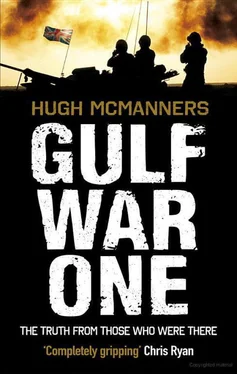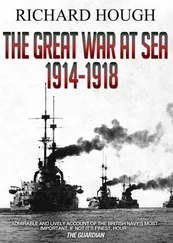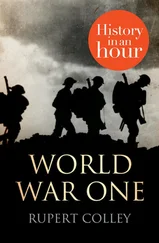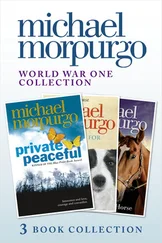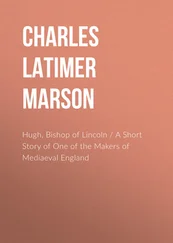He was a member of the Ba’ath Party, so I don’t know why he was taken. But then after two weeks of detention he’d been released. But ten months after he was released, he was taken again and we never saw him after that. Then much later we heard he’d been executed soon after his second arrest.
So in 1987, a few days before Saddam took full power, I left Baghdad. Later that year, I was in the north of Iraq, helping to run a radio station broadcasting messages to the Iraqi people against the regime. We were in a place near Kirkuk beside the triangular area between Iran, Iraq and Turkey, at a headquarters of the freedom fighters. One evening in June, two aeroplanes bombarded the area and people recognised the smell, like garlic, and discovered it was chemical weapons. People’s skin and sensitive areas became irritated and swollen, they couldn’t open their eyes and were literally crippled; more than forty people [suffered from] different levels of contamination, and three people died in the actual attack.
We were fifty kilometres over the other side of the mountain from this, where many of the people escaped by walking over the hills. Their voices were just whispers, like only breathing, because of what had happened to their throats. Many others, being Kurds, had gone across the border to Irani Kurdish villages to get treatment. Another area was attacked called Melkhan, but there was only villagers there – no freedom fighters.
Dr Mary McLoughlin
I’m a hospital doctor from Ireland, working in hospitals abroad. In 1989 I was recruited by an Irish medical contracting company to work in a hospital in Baghdad.
In September 1989, with the war with Iran ended only the previous year, there were still very few goods in the shops. But we could see, month by month, life getting better for the people. It was much easier for us to get around, to rent a car, and we were able to drive to Mosul, even fly to Basra and stay in the Sheraton hotel. We had a great time. Iraq was a beautiful country, and we were not in any way prepared for what happened. Iraqi people were delighted the fighting was over, and that their country was coming right. They were spending money again, and seemed to be loosening up and beginning to enjoy their newly found peace after a very hard eight-year war.
Hashim Ali
Iraq freedom fighter
After the coup, Ba’ath party membership had increased rapidly. But it was oil money that really made the difference. After nationalising our oil – or at least one year later when the oil money began to arrive in Iraq – was when the Ba’ath party made themselves really powerful. They bought the people, and this was the beginning of Iraq’s decline.
Everything else was going right for Iraq. We had previous unbelievably high levels of land development, and plenty of money. Iraq was to become the ‘Switzerland of the Middle East’. But without wisdom, money is nothing.
Dr Mary McLoughlin
We never discussed the Ba’ath party. Even discussing the Ba’ath party in private would usually mean instant death of any Iraqi, so we didn’t do that. We would have been putting their lives in danger.
But in the meantime the Ba’ath party kept good order. There were very few security problems, banditry or local hostilities, although I wasn’t there during the Iran–Iraq war, when travel was not possible. Foreigners were extremely well regarded by the Iraqis, and we all had a great time.
Hashim Ali
Iraq freedom fighter
I am opposed to the Ba’ath party, but I hope I will not be biased about them. Their name means ‘Resurrection’. Coincidentally, the Shah of Iran had a party with the same name; both looking backwards towards a return of better days. There’s nothing wrong with this, and it has a very good side, representing good values. I’d say that the Ba’ath party’s political position began as a way of thinking about society, people and ideas, to be pan-Arab before being Iraqi.
But in reality the Ba’ath party were purely Iraqi, concerned with seizing power and keeping it. I used to read their newspaper, and I was very confused by all the propaganda. I read some of their books too, and tried to understand, but it was all gibberish, like contemplation and wishing, rather than a clear plan for developing a society with roots, like schools and universities, that can grow. But as is inevitable when you have money, eventually they did start to move things forward, but with a lot of corruption and fraud.
Their central message was to build Arab power, so when in 1970 that great Arab figure Egyptian President Gamal Abdel Nasser passed away, the Ba’athists saw themselves as providing the replacement. They had this idea of there being one Arab history and one Arab land. There was never such a unity, so this was like dreaming about a glorious past that never existed.
The Rt Hon Tom King
UK Secretary of State for Defence
I’d been four years as Secretary of State for Northern Ireland, the ideal training for a defence secretary, working with some of the army’s best commanders. I’d also been a National Service officer, and served four years in the TA [Territorial Army]. Some politicians think military people are a strange breed apart, but I was able to cut through the usual ‘bloody politicians’ and ‘bloody civil servants’ attitude of the military.
As the two Germanys came together, the Warsaw Pact crumbled, removing the need for us to maintain so many troops out in Germany. The rest of 1989 was taken up with our ‘Options for Change’ defence review, adjusting to the new situation in Eastern Europe.
Lieutenant Colonel Charles Rogers
Commanding Officer, Staffordshire Regiment
In the ‘Options for Change’ defence cuts, the Staffordshire Regiment was to be axed – amalgamated with the Cheshire Regiment, who we thought were from the wrong side of the hill: northerners, of a different character to ourselves. They thought they were rather a smart regiment, so it didn’t work for them either. The esprit de corps of county infantry battalions is built up over time based on geography, so disbanding or amalgamating is very painful. When I told the sergeants’ mess, they burst into tears and demanded to know why, only I didn’t know. I had no way of leading them through this, and felt a bit of a twit.
Dr Mary McLoughlin
I was working in the renal transplant ward of the Ibn al Bitar private hospital, funded by Saddam Hussein, granted to the people during the Iran–Iraq war when nobody had been allowed to leave the country. Through public tender, an Irish company had the job of managing the hospital, so half the staff were Irish on long and short contracts, and all the rest were from other countries. Our patients were Iraqis and a few Kuwaitis. The director was Iraqi, but we had little to do with him.
The patients were not from the Iraqi elite, but every walk of life; from the hills or villages as well as the city. The kidney transplant unit treated a lot of people who lived in the desert and had been living under very poor conditions, particularly children. The hospital was a truly socialist organisation, and right up until the end, the treatment people received there was completely free. We were mostly humanitarian aid workers, and would not have worked in a hospital which catered only for the elite.
There were a number of practices in our hospital that wouldn’t happen elsewhere, for instance the buying of kidneys, which was done extensively. Rich Iraqis bought kidneys from Egyptian workers and suchlike, for themselves or for their relatives. Although many of the medical staff queried the ethics of this, I didn’t consider this particularly a problem. In fact, I decided that kidney-buying was more ethical because it overcame another, rather more unwholesome, practice by which the women of a family would be ordered to donate their kidneys to other family members.
Читать дальше
